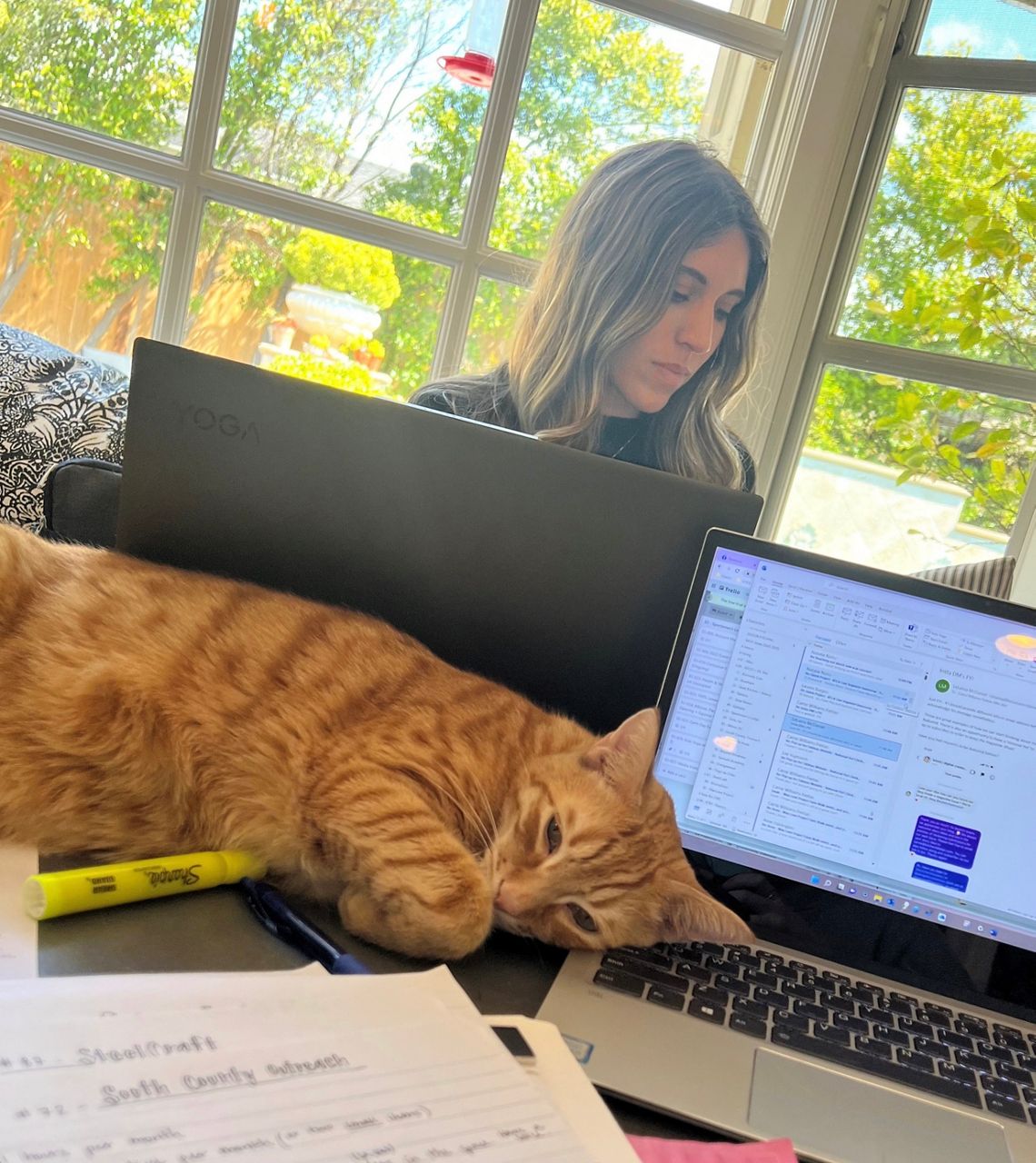NEWPORT BEACH, Calif. — When Carrie Freitas first thought of switching her company from a five-day, 40-hour workweek to a four-day, 32-hour workweek, she had some reservations.
How will her employees and clients react? How is billing going to work with her clients? Most importantly, how can her company remain profitable in a highly competitive professional services business?
“In marketing and public relations, it’s not a 9-to-5 job,” said Freitas, the founder and principal of Kitchen Table Marketing + PR in Newport Beach. “You’re only as good as the last story you placed or metric ad campaign. You have to turn in information quickly. You’re on call and working under a lot of pressure to meet the deadlines imposed by clients and journalists, etc.”
Freitas decided to give it a go anyway as a way to help prevent burnout and heighten employee satisfaction, and for the past 10 months, she said the bold and progressive move has paid off.
“I feel like my team and I are getting the reset we all need, especially during a busy week, and it helps us go full force on Mondays,” she said.
Freitas is part of a growing movement of companies experimenting with the four-day workweek, with no cut in full-time salary.
Amid the coronavirus pandemic and so-called “great resignation,” many white-collar companies are piloting a four-day workweek to attract and retain talent, and promote a better work-life balance. The experiment, along with remote or work-from-home and hybrid work, is part of a more significant shift in how the work landscape is changing in the 21st century.
In a TED Talk in May, Boston College Economics and Sociology Professor Juliet Schor told the audience that the pandemic “turbo-charged” the four-day workweek movement, and there are a lot of benefits to having that type of arrangement for employees and employers.
“People are burning out,” she told the audience, adding that four million people nationwide quit their jobs every month during the pandemic.
“Results do vary [but] research shows that people are less stressed, value their jobs more, and have better lives outside of work,” she said. “In most cases, they are as productive in four days as they are in five. Companies can also see benefits through lower turnover and a higher quality applicant pool. Less burnout reduces health care costs, mistakes and poor service.”

Still, despite some of the benefits, many labor experts are skeptical of such a move.
One labor attorney told human resource news outlet HRDive that a 32-hour workweek could create chaos among employers and force them to split employees’ hours.
Earlier this year, a California bill AB 2932 would have required companies that employ more than 500 people to work only 32 hours a week. But the bill failed to pass a committee in the state legislature in May.
“I was certainly disappointed that it did not make it to the finish line,” said Assembly member Evan Low, D-Silicon Valley. “This is part of the legislative process. Many proposals that are significant in scope and bold and courageous often take a number of years. We should not be constrained by one legislative timeline.”
Low said he co-authored the bill with Assembly member Cristina Garcia, D-Bell Gardens, to reimagine the future of the workforce.
With the advent of technology, the workforce is much different now than in the previous generation. He said that workers work more effectively and efficiently, and many prioritize family and work-life balance.
Low admits there are legitimate concerns about the 32-hour workweek for employers. He said there’s insufficient data “to best determine the various vantage points.”
“There are a number of impacts and questions we need to answer,” he said. “How does [a 32-hour workweek] impact retirement for those with a pension plan, union collective bargaining, or even a small business exemption? Those who work in a grocery store are different from those who work in an office. These are real legitimate concerns.”
Low said he plans to meet with stakeholders, economists, HR and business leaders, workers and think tanks before reintroducing the bill in 2023.
“Doing due diligence is critical to get this right,” he said. “We’re trying to reimagine the workforce for the 21st century.”
For Freitas, she can’t envision ever going back to a five-day workweek.
She said a few things she’s learned are that shortening the workweek requires more focus.
She’s eliminated nonessential meetings and extraneous calls. She said every call has a plan and no lapses in communication.
“Every minute counts,” she said. “This schedule shines the light on weaknesses. You have to work smart and work hard.”
She said having that extra day off has done wonders for her and her employees’ schedules and life.
“There is no more burnout,” she said. “Now, you can plan a weekend getaway or a trip and not leave immediately on a Friday night. Having that Friday allows you to get some housekeeping and life management done. A weekend is a real weekend off and not a working weekend.”











